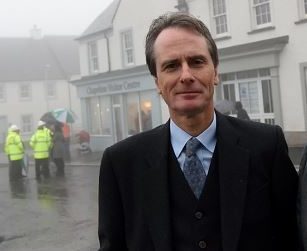A cousin of the Queen has won a landmark ruling at the country’s highest court following a two-year legal battle with council planners over developer contributions.
The Supreme Court upheld a decision that the Elsick Development Company (EDC) should not have to pay £7.5million to Aberdeen City and Aberdeenshire councils for transport improvements.
Local authority leaders said it was a “disappointing” decision that raised serious questions about other previous agreements and over where cash-strapped councils would find funding for vital infrastructure.
But the Duke of Fife, who heads the firm behind the Chapelton of Elsick estate, said the saga had been “a waste of time and money”.
Neither council was prepared to disclose how much taxpayers’ money has been spent on fighting the legal challenge but between them they have budgeted for a £220,000 bill.
The case dates back to 2015 when EDC succeeded in having its bill cut to just £287,000 for the 2,000 acre development.
In April 2016, the Court of Session backed the smaller obligation after the firm went to court to argue the demand, which included contributions towards a new bridge over the River Dee and Kintore Railway Station, was unlawful.
However the legal wrangle continued when in December the two councils were given the go-ahead to appeal the decision to the Supreme Court.
Yesterday it ruled in favour of the firm, which has the duke, David Carnegie, at the helm.
Last night the leaders of both authorities, who together make up the Strategic Development Planning Authority (Sdpa), said they were deeply disappointed by the decision.
Aberdeenshire’s Jim Gifford said: “Clearly it’s disappointing that a very sensible system for raising money to pay for infrastructure associated with major developments has been deemed to be unsuitable.
“Going forward we will have to look at different ways of achieving this on a project by project basis.
“In terms of how this could affect retrospective cases I think that’s something our legal officers will be exploring.”
City council co-leader Jenny Laing added “This is as far as we can go in the UK currently and the courts have ruled the scheme unlawful.
“From a council point of view we are facing ever increasing financial constraints and if infrastructure isn’t going to come from developer contributions we need to ask where it will come from.”
The new town was originally unveiled in 2010, with the initial masterplan outlining a development of 4,045 houses, along with shops, offices, parks and schools in what developers said would be a £1billion investment.
Longer-term, the Chapelton site can accommodate up to 8,000 houses within seven neighbourhoods.
The duke said: “This issue has been examined legally three times and each time found in our favour.
“This has not been on a mere technicality but on a fundamental and long-established principle of planning law.
“The whole saga has been an unfortunate waste of time and money.”
